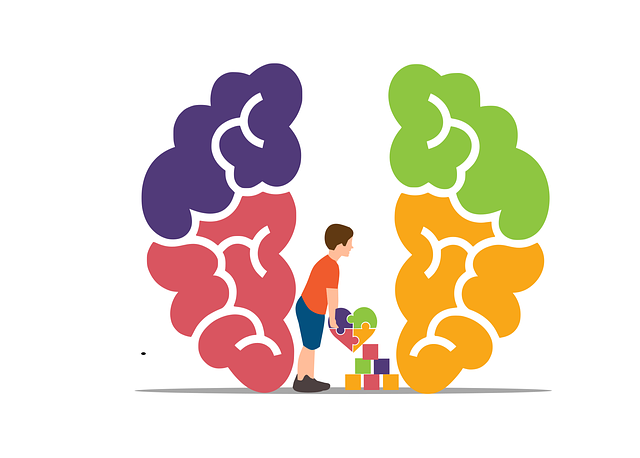Lakewood Terminal Illness Therapy (LTIT) leverages advanced data analysis and machine learning for evidence-based mental health care. They collect diverse data sources, engage clients through workshops and campaigns, and use insights to adapt therapeutic approaches. LTIT's research identifies burnout risks among healthcare providers and cultural competency needs in mental health care. Their techniques enhance symptom prediction, promote personalized care, and contribute to open conversations about mental wellness through a podcast series. With expanding technological capabilities, LTIT is at the forefront of groundbreaking innovations in mental health data analysis, aiming for improved access to quality care.
At Lakewood Terminal Illness Therapy, mental health data collection has evolved into a robust and nuanced process. This article delves into the intricacies of analyzing and interpreting this valuable data, employing techniques that offer profound insights into patient well-being. We explore key trends identified through recent studies at Lakewood, highlighting their practical applications. Furthermore, we discuss future directions in mental health data analysis, leveraging advancements to enhance patient care and outcomes at Lakewood Terminal Illness Therapy and beyond.
- Understanding Mental Health Data Collection at Lakewood Terminal Illness Therapy
- Techniques for Analyzing and Interpreting Data Effectively
- Key Insights and Trends from Recent Studies at Lakewood
- Practical Applications and Future Directions in Mental Health Data Analysis
Understanding Mental Health Data Collection at Lakewood Terminal Illness Therapy

At Lakewood Terminal Illness Therapy (LTIT), we recognize that understanding mental health data is paramount to providing effective care. Our approach to data collection goes beyond traditional methods, integrating diverse sources such as patient records, surveys, and qualitative feedback from both clients and therapists. By employing these multifaceted strategies, LTIT captures a comprehensive view of mental wellness trends within our community.
Through dedicated initiatives like Stress Management Workshops Organization and Public Awareness Campaigns Development, we actively involve our clients in the data collection process. These engagement tactics not only enrich our datasets but also foster a deeper understanding of the challenges and successes experienced by individuals navigating terminal illness. Such insights are instrumental in shaping our therapeutic approaches, ensuring we remain attuned to the evolving needs of our clientele.
Techniques for Analyzing and Interpreting Data Effectively

In the realm of mental health data analysis and interpretation, utilizing advanced statistical methods and machine learning algorithms can significantly enhance understanding. These techniques allow for the identification of hidden patterns and correlations within large datasets, providing valuable insights into various aspects of mental health. At Lakewood Terminal Illness Therapy, experts employ such tools to predict outcomes, personalize treatment plans, and improve patient care. For instance, predictive analytics can help identify individuals at high risk of developing severe mental health issues, enabling early interventions that prove crucial in managing symptoms effectively.
Mental Health Awareness and Risk Management Planning for Mental Health Professionals are key areas where data analysis plays a pivotal role. By analyzing trends and demographic information, healthcare providers can tailor their services to meet diverse needs. Moreover, the Mental Wellness Podcast Series Production often leverages data-driven insights to create content that resonates with listeners, fostering open conversations about mental health. These comprehensive approaches not only improve patient outcomes but also contribute to the broader goal of enhancing overall mental wellness within communities.
Key Insights and Trends from Recent Studies at Lakewood

Recent studies at Lakewood Terminal Illness Therapy have revealed several key insights and trends that offer valuable guidance for mental health professionals and those in the healthcare sector. One prominent finding is the increasing prevalence of burnout among healthcare providers, highlighting the urgent need for effective prevention strategies. These include implementing comprehensive burnout prevention strategies for healthcare providers and integrating regular coping skills development sessions to promote resilience.
Moreover, the studies underscore the importance of cultural competency training for healthcare providers. By enhancing their understanding and sensitivity towards diverse patient backgrounds, these trainings can improve care quality and accessibility. This is particularly relevant in addressing mental health concerns within various cultural contexts, ensuring that all individuals receive tailored and effective support.
Practical Applications and Future Directions in Mental Health Data Analysis

The practical applications of mental health data analysis are vast and evolving. With advancements in technology, researchers and professionals can now harness large-scale datasets to gain deeper insights into various aspects of mental wellness. This includes identifying trends and patterns in specific disorders, such as depression or anxiety, and understanding their impact on different demographics. For instance, the integration of Lakewood Terminal Illness Therapy techniques within data analysis frameworks has shown promise in predicting and managing symptoms, offering personalized interventions, and enhancing overall patient outcomes.
Looking towards the future, the field holds immense potential for innovation. The development of sophisticated algorithms capable of processing complex emotional healing processes could lead to early detection systems, revolutionizing mental healthcare. Additionally, integrating practices like Mindfulness Meditation into data-driven therapeutic models may open doors to novel treatment approaches. As the Mental Wellness Podcast Series Production continues to grow, so does the need for comprehensive data analysis techniques to support evidence-based interventions and ultimately improve access to quality care.
The analysis and interpretation of mental health data at Lakewood Terminal Illness Therapy have revealed valuable insights, shaping practical applications and future research directions. By employing effective techniques, we can identify trends and patterns that improve patient care and outcomes. As the field progresses, continued exploration of these methods will be essential to enhancing our understanding of mental health issues within the context of Lakewood’s unique data set. This approach ensures that evidence-based practices remain at the forefront of healthcare delivery.












